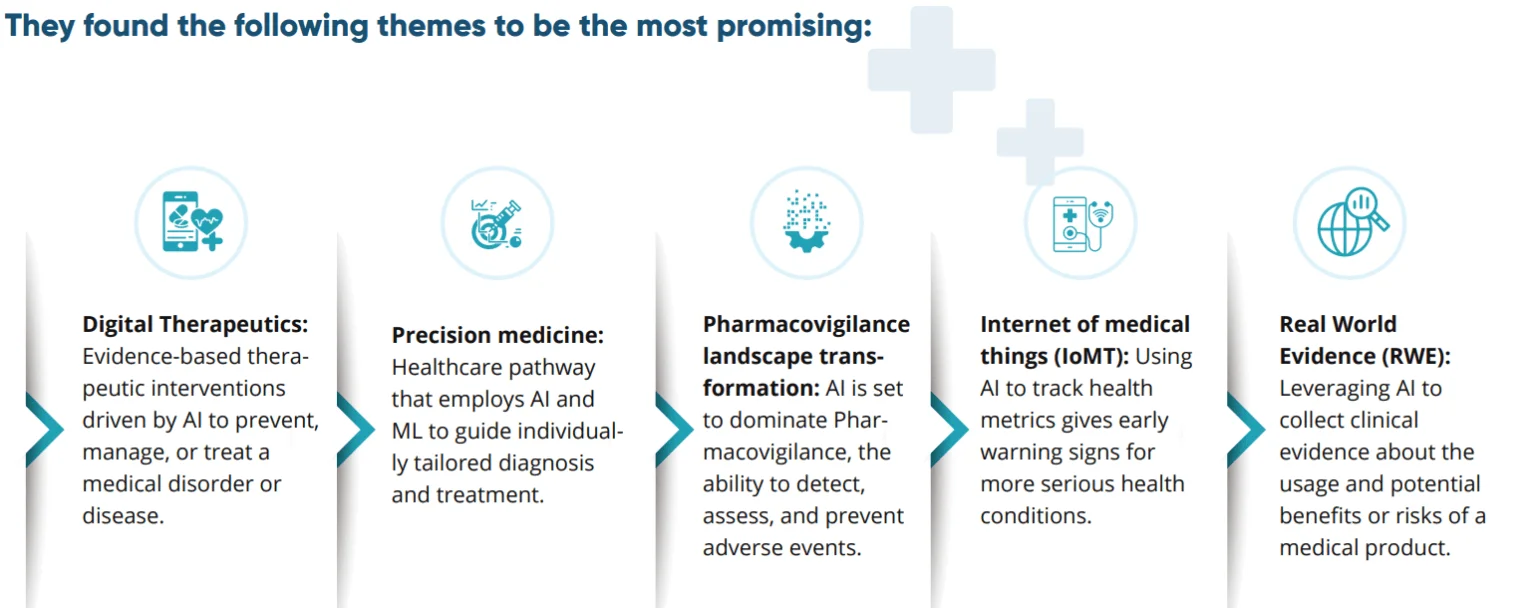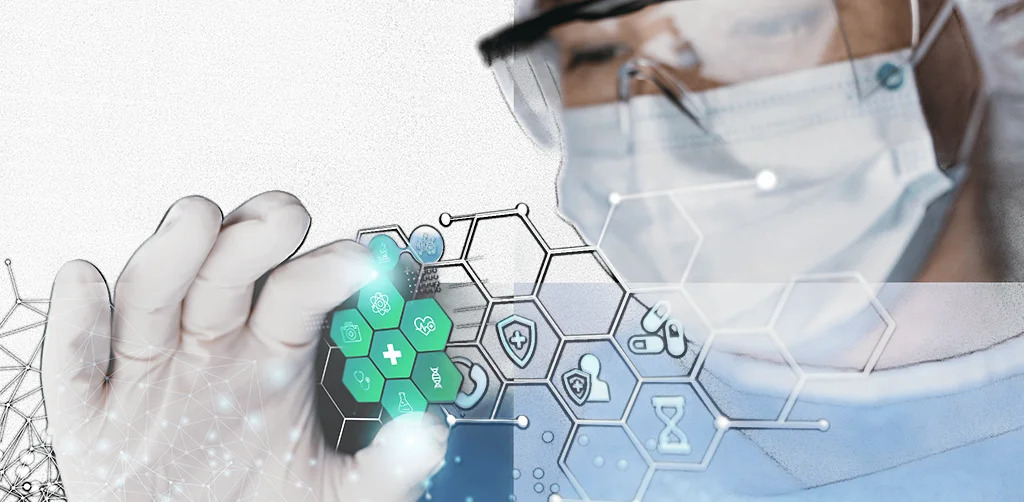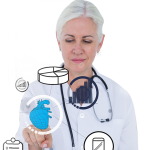In the future, pharmacies will depend on advanced technologies such as Machine Learning (ML), deep learning through neural networks and cloud computing to improve patient care. These technologies have the potential to revolutionize the way medications are prescribed, dispensed, and monitored. The integration of Internet of Things (IoT) devices in pharmacies will enable real-time monitoring of medication inventory, ensuring timely restocking and reducing shortages. This connectivity will also facilitate remote patient monitoring, allowing pharmacists to track patient adherence and provide personalized interventions.
Let us look at the most promising technology that are poised to transform the industry:
Virtual Reality (VR)
The use of VR in medicine is proving to be a promising lead with its potential to create an immersive and engaging experience for patients.
According to a report by Grand View Research, the global VR in healthcare market is expected to reach $7.05 billion by 2026. This is because of the growing use of VR in medical training, therapy, and rehabilitation.
In pharmacies, VR/AR can be used to simulate the effects of medication or provide educational resources to patients. Such an approach will help them better understand their medication regimen and the potential side effects. In addition, VR/AR can be used to train pharmacists and pharmacy technicians, improving their skills and knowledge.
Prescription Monitoring
Another area where AI is being used is in prescription monitoring. Philips has developed an AI-powered prescription monitoring system. This system analyzes electronic medical records to identify patients who may not take their medicines on time.
The system also provides real-time alerts to healthcare providers to intervene before a patient’s condition worsens. According to Philips, the system has helped reduce the number of medication-related hospital readmissions by up to 60%, improving patient outcomes and reducing healthcare costs.
Cloud computing
Cloud is another technology that can transform the pharmacy industry. Cloud-based platforms can help pharmacies streamline their operations, improve their data analytics capabilities, and enhance collaboration with other healthcare providers.
According to a report by MarketsandMarkets, the global healthcare cloud computing market is expected to reach $64.7 billion by 2025. This is because of the growing need for secure and scalable data storage and management solutions. By migrating to the cloud, pharmacies can improve their cybersecurity posture through encryption, multi-factor authentication, and intrusion detection/prevention systems.
The Everest Group, a leading global research firm has published a report on emerging themes in life science analytics.

The pharmacies of the future will be powered by advanced technologies. This will enable them to provide better patient care, improve efficiency, and reduce healthcare costs. As these technologies continue to evolve, it is likely that we will see even more innovative use cases emerge, further improving the way medications are prescribed, dispensed, and monitored. Our innovative healthcare analytics solutions can support the pharmacies of tomorrow.










